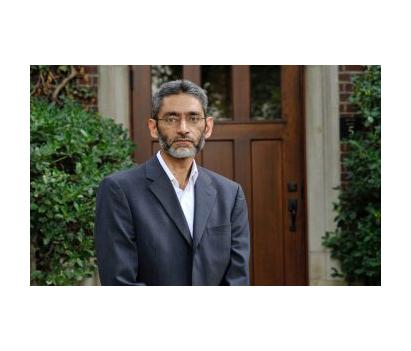CSAS Lecture Series | Islam and the Lessons of Pakistan’s History
Muhammad Qasim Zaman, Professor of Near Eastern Studies and Religion, Princeton University, Department of Religion
How have Islamic doctrinal orientations, religious institutions, and governmental policies relating to Islam evolved since the establishment of Pakistan in 1947? What has constrained successive Pakistani governments in their policies and their initiatives in the religio-political sphere? What insight and lessons can the history of Pakistan offer for a better understanding of the relationship between Islam and politics in the contemporary world? These are among the questions that this talk will address.
This event is cosponsored by the U-M Global Islamic Studies Center.
Muhammad Qasim Zaman joined the Department of Near Eastern Studies of Princeton University in 2006. He has written on the relationship between religious and political institutions in medieval and modern Islam, on social and legal thought in the modern Muslim world, on institutions and traditions of learning in Islam, and on the flow of ideas between South Asia and the Arab Middle East. He is the author of Religion and Politics under the Early Abbasids (1997), The Ulama in Contemporary Islam: Custodians of Change (2002), Ashraf Ali Thanawi: Islam in Modern South Asia (2008), Modern Islamic Thought in a Radical Age: Religious Authority and Internal Criticism (2012), and Islam in Pakistan: A History (2018). With Robert W. Hefner, he is also the co-editor of Schooling Islam: The Culture and Politics of Modern Muslim Education (2007); with Roxanne L. Euben, of Princeton Readings in Islamist Thought (2009); and, as associate editor, with Gerhard Bowering et al., of the Princeton Encyclopedia of Islamic Political Thought (2013). Among his current projects is a book on South Asia and the wider Muslim world in the eighteenth and the nineteenth centuries.
If you are a person with a disability who requires an accommodation to attend this event, please reach out to us at least 2 weeks in advance of this event. Please be aware that advance notice is necessary as some accommodations may require more time for the university to arrange.
This event is cosponsored by the U-M Global Islamic Studies Center.
Muhammad Qasim Zaman joined the Department of Near Eastern Studies of Princeton University in 2006. He has written on the relationship between religious and political institutions in medieval and modern Islam, on social and legal thought in the modern Muslim world, on institutions and traditions of learning in Islam, and on the flow of ideas between South Asia and the Arab Middle East. He is the author of Religion and Politics under the Early Abbasids (1997), The Ulama in Contemporary Islam: Custodians of Change (2002), Ashraf Ali Thanawi: Islam in Modern South Asia (2008), Modern Islamic Thought in a Radical Age: Religious Authority and Internal Criticism (2012), and Islam in Pakistan: A History (2018). With Robert W. Hefner, he is also the co-editor of Schooling Islam: The Culture and Politics of Modern Muslim Education (2007); with Roxanne L. Euben, of Princeton Readings in Islamist Thought (2009); and, as associate editor, with Gerhard Bowering et al., of the Princeton Encyclopedia of Islamic Political Thought (2013). Among his current projects is a book on South Asia and the wider Muslim world in the eighteenth and the nineteenth centuries.
If you are a person with a disability who requires an accommodation to attend this event, please reach out to us at least 2 weeks in advance of this event. Please be aware that advance notice is necessary as some accommodations may require more time for the university to arrange.
| Building: | Weiser Hall |
|---|---|
| Event Type: | Lecture / Discussion |
| Tags: | Asia, Pakistan |
| Source: | Happening @ Michigan from Center for South Asian Studies, International Institute, Global Islamic Studies Center, Asian Languages and Cultures |


